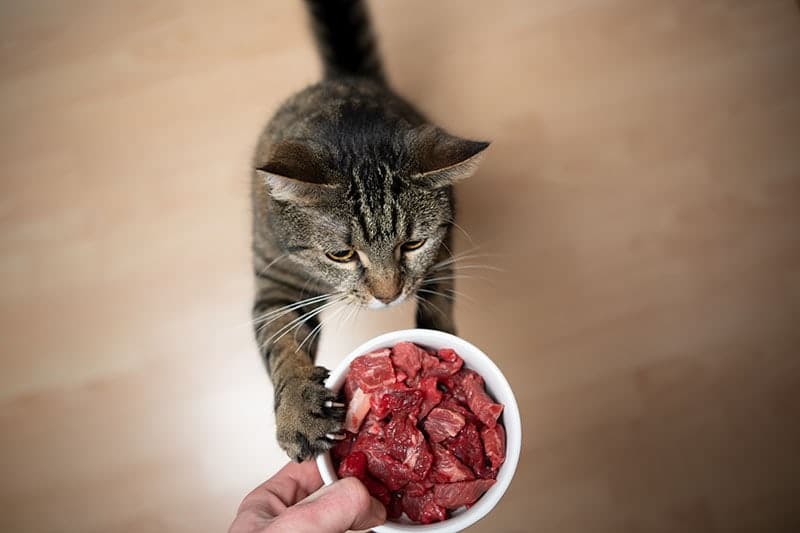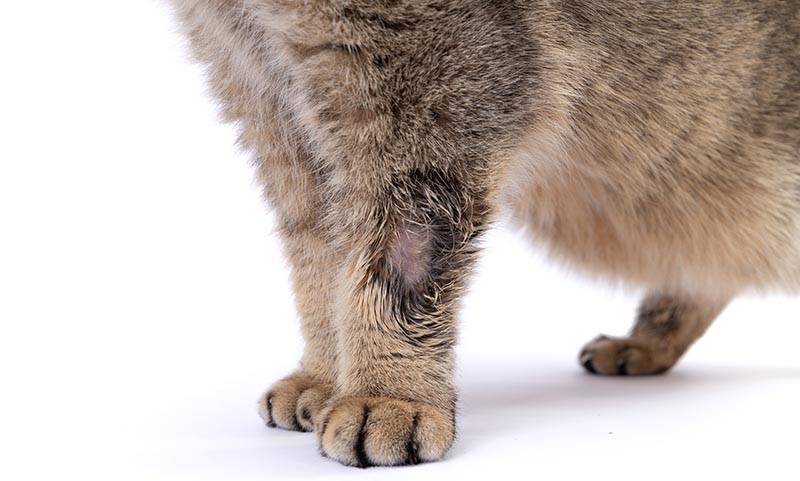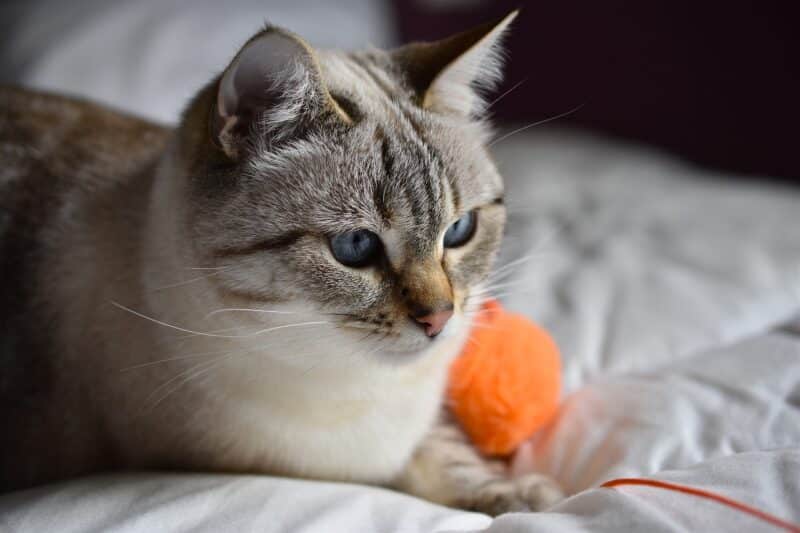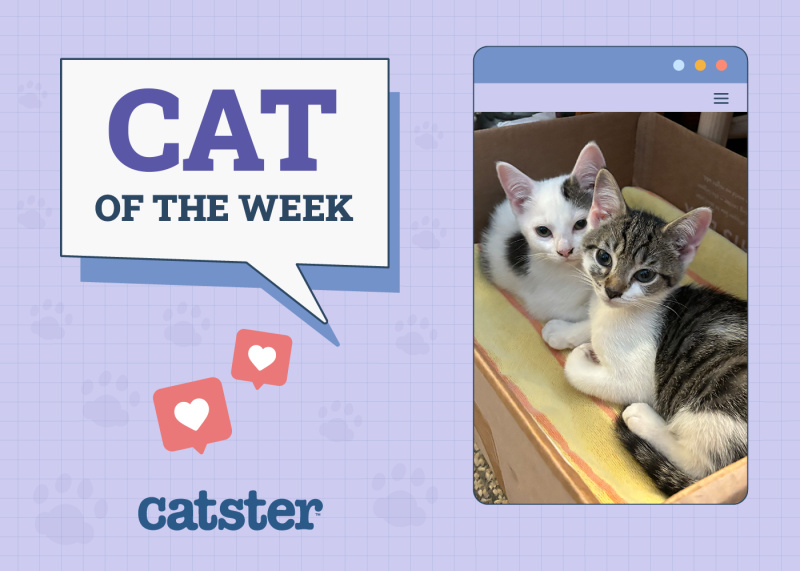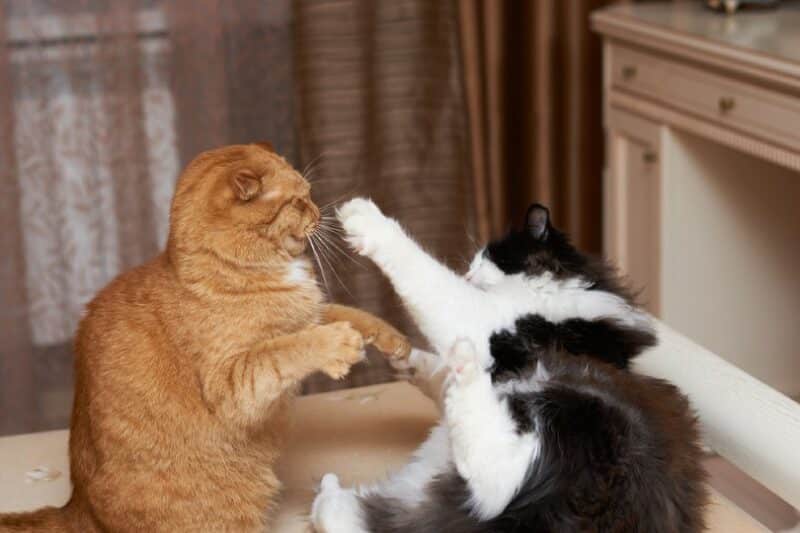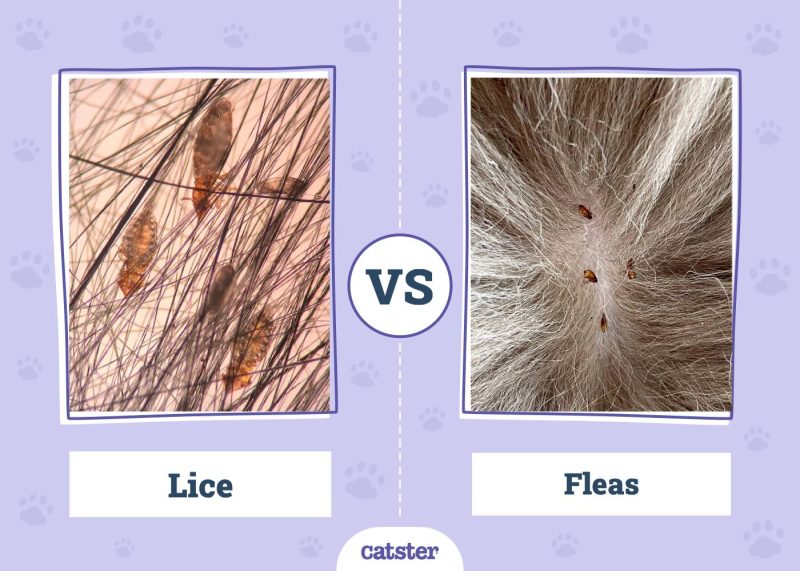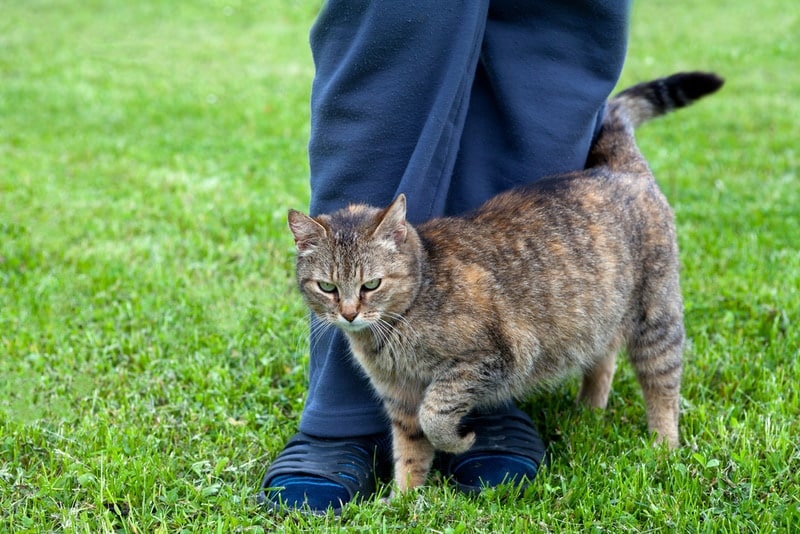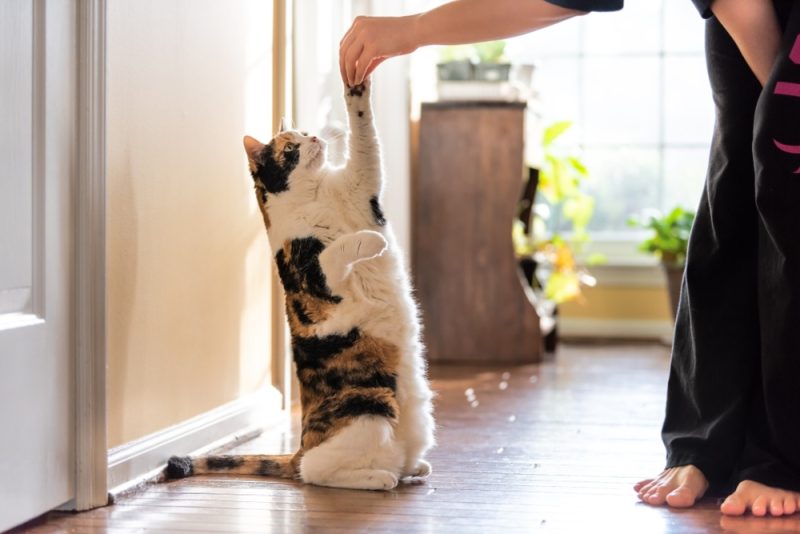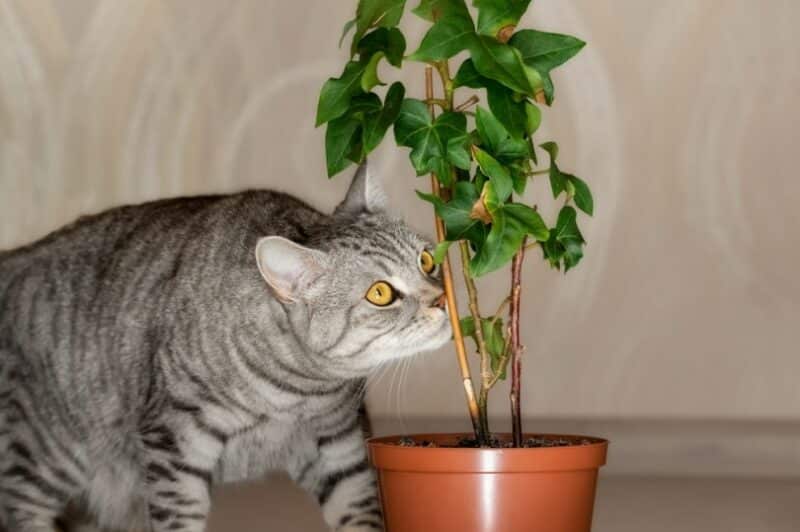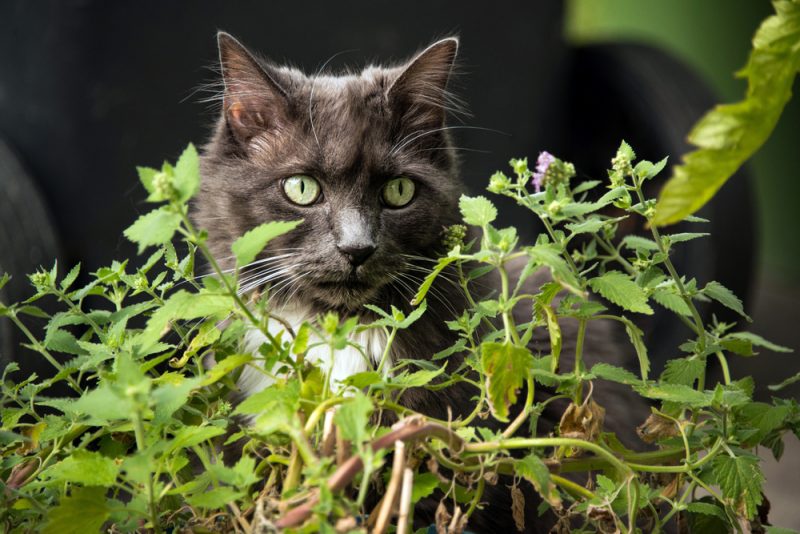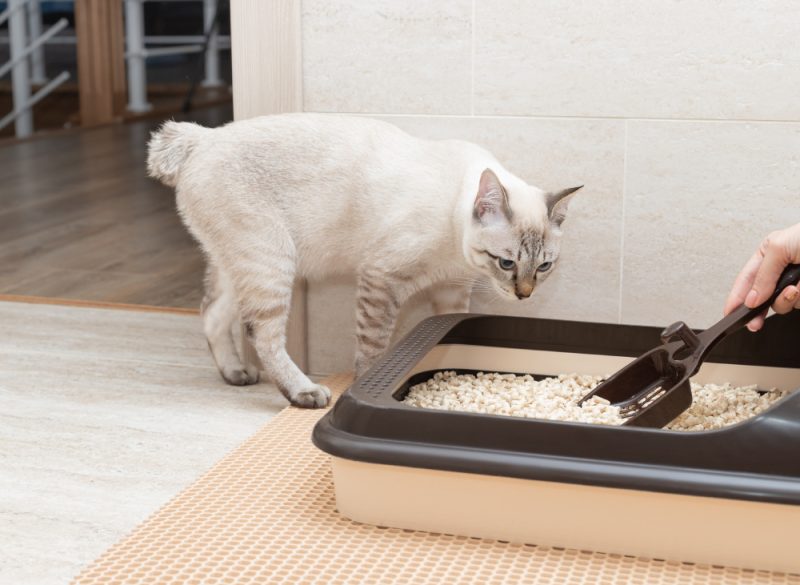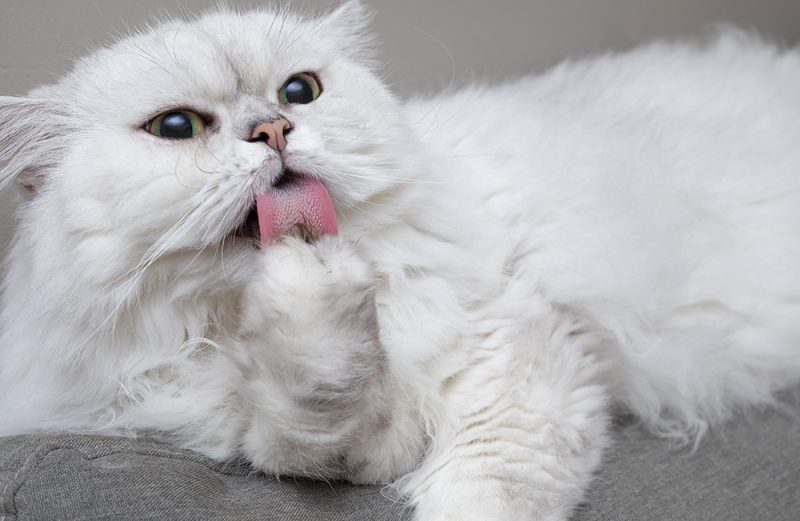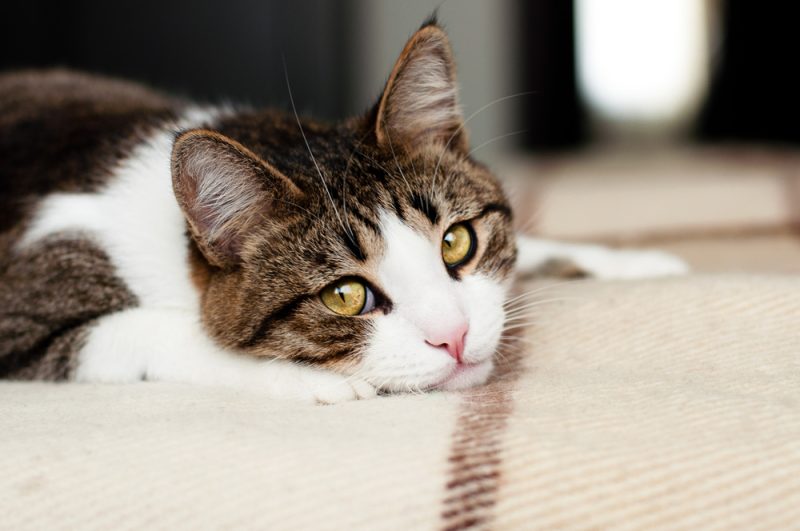There are arguments for and against a raw food diet for cats. Some say that it can be dangerous due to the prospect of contaminated meat and a lack of nutrients. Others say that it can be beneficial because it’s easy to digest and can be tailored to each cat’s specific nutrient needs as time goes on.
Either way, if, in conjunction with your vet, you determine whether your cat should go on a raw food diet, it will take dedication, commitment, and work. Here are five tips to make the process easier and more effective overall.

The 5 Crucial Tips to Successfully Transition Your Cat to Raw Food
1. Take Things Slowly
Kittens rely on their mother to provide them with the knowledge of what they should eat as they grow older. Once a domesticated mother cat stops nursing, they don’t usually have a say in what their kittens eat after we humans take over. Therefore, kittens are dependent on us to tell them what is good to eat and what isn’t.
The problem is that once a cat gets a taste for the food that their caretakers provide them, they don’t easily switch to something else — even a raw food diet. Although cats in the wild eat raw animal protein and other raw foods, domesticated cats are not typically as open to the prospect.
You must give the cat’s digestive tract an opportunity to adapt to any change in its food. So, it is important to take things slow and introduce raw foods in increments. Only put a small amount of raw food in your cat’s bowl with their commercial food to see how it goes. If they enjoy it, you can start adding a little more at a time until the commercial food is gone. Do not force the raw food, if your cat doesn’t like it. You can reach out to a veterinarian for guidance.
Need veterinary advice but can't get to the clinic? Catster recommends PangoVet, our online veterinary service. Talk to a vet online and get the answers and advice you need for your cat without having to leave your living room — all at an affordable price!

2. Introduce Other Elements
If your kitty is resistant to raw foods for whatever reason, you may be able to tempt them by adding other elements to their food bowls. For example, you could try adding chicken, beef, or bone broth to the mix (just avoid any with onions, garlic, or excessive salts!). You could also mix the raw food with wet commercial food that mimics the texture of the meat that you want your cat to eat.
You can also introduce a few cooked veggies to a raw meat diet if your cat is used to a cooked commercial diet. This will provide them with some of the satisfaction that they get from eating processed food while encouraging them to eat whole foods, cooked or not.
3. Switch to Wet Food Options
If your cat is used to eating kibble, it is a good idea to switch over to a wet food diet before even considering a raw food diet. Raw food diets are high in water content like commercial wet foods are. Traditional kibble is extremely low in water content. Therefore, it’s a good idea to prep your cat for the extra bulk by getting them used to commercial wet foods.
By learning how to eat and digest a sufficient amount of wet food, your cat might be more likely to accept a raw food diet.
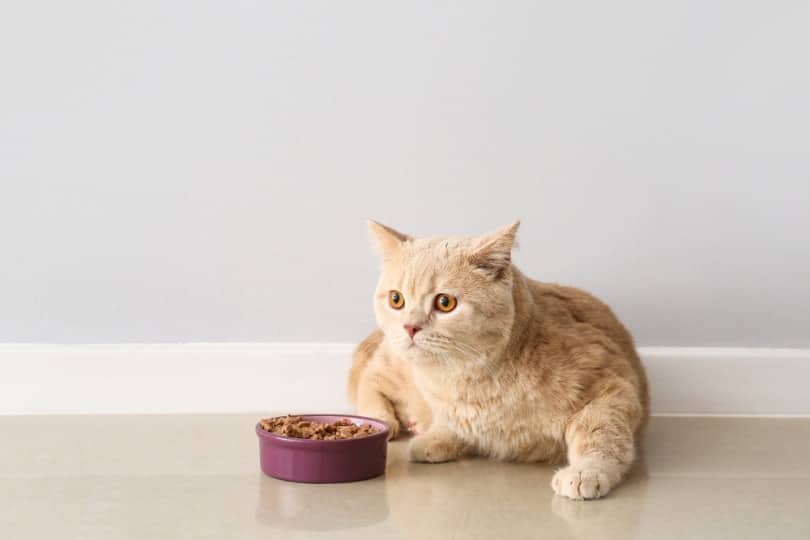
4. Make Scheduled Meals a Priority
Making scheduled meals a priority will help ensure that your cat is ready to eat every time you feed them and that they will eat whatever you put in front of them. You can schedule meals for times that you know your cat will be hungry, so there is less of a chance that they will leave any food behind.
Unlike with other foods, the very nature of raw food means that if your cat does leave any behind, you should dispose of it, rather than try to keep the leftovers.
5. Add Real Meat, No Matter What
Even if your cat does not take to a wholly raw food diet, you can still enhance their diet by adding raw meat to their commercial food meals. They will likely eat raw food while consuming the food that they are accustomed to. Please make sure this meat comes from reliable and clean sources and that your cat’s daily diet is complete and balanced. This is easier to achieve with a commercially available raw food diet.
As time goes on, you can start adding more raw meat to their meals, as much as they are willing to consume. Keep in mind that this can take weeks to months for some cats, and others will never like raw food, so patience is essential.

Conclusion
Cats are finicky eaters, so it should not come as a surprise if they don’t take to a raw food diet immediately. They only know what they are taught, so as a caregiver, you play a major role in what your kitty eats. Never give up on the goals that you have for your cat’s health, and you should be on the right track.
See also:
- 10 Best Raw Cat Foods – Reviews & Top Picks
- Rad Cat Raw Food Diet – Are They Still in Business? Facts, Recalls & FAQ
Featured Image Credit: Nils Jacob, Shutterstock
